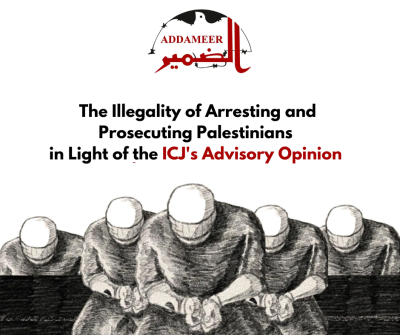
The International Court of Justice (ICJ) issued its advisory opinion on the legality of the Israeli occupation in light of the occupying state committing genocide against the Palestinian people, along with the escalation of arrest campaigns throughout all occupied territories and the increase in crimes committed by the occupation and its settlers against Palestinians. Despite the significance of what the ruling stated regarding the illegality of the Israeli occupation, and that the occupying state is under an obligation to end its unlawful occupation of the Palestinian territory as rapidly as possible, the ruling did not directly address the illegality of the arrest of Palestinians by the occupying state or their trial before unlawful courts. In light of this advisory opinion, how are the arrest and trial of Palestinians under Israeli military orders or criminal laws considered illegal?
Since the beginning of the Israeli military occupation of Palestine in 1967, the occupation authorities began issuing military orders that affected all aspects of Palestinian life. They established a military judicial system that served as a tool to dominate and control the Palestinian people, alongside the legislative authority of the military commander who, through military orders, criminalized every guaranteed basic right. The military judicial system constituted a system of apartheid, as it used its powers imposed by the Israeli occupation to suppress and deter the Palestinian people; in order to solidify the dominance imposed since the occupation of the land and the attempts to deprive the Palestinian population of their right to self-determination.